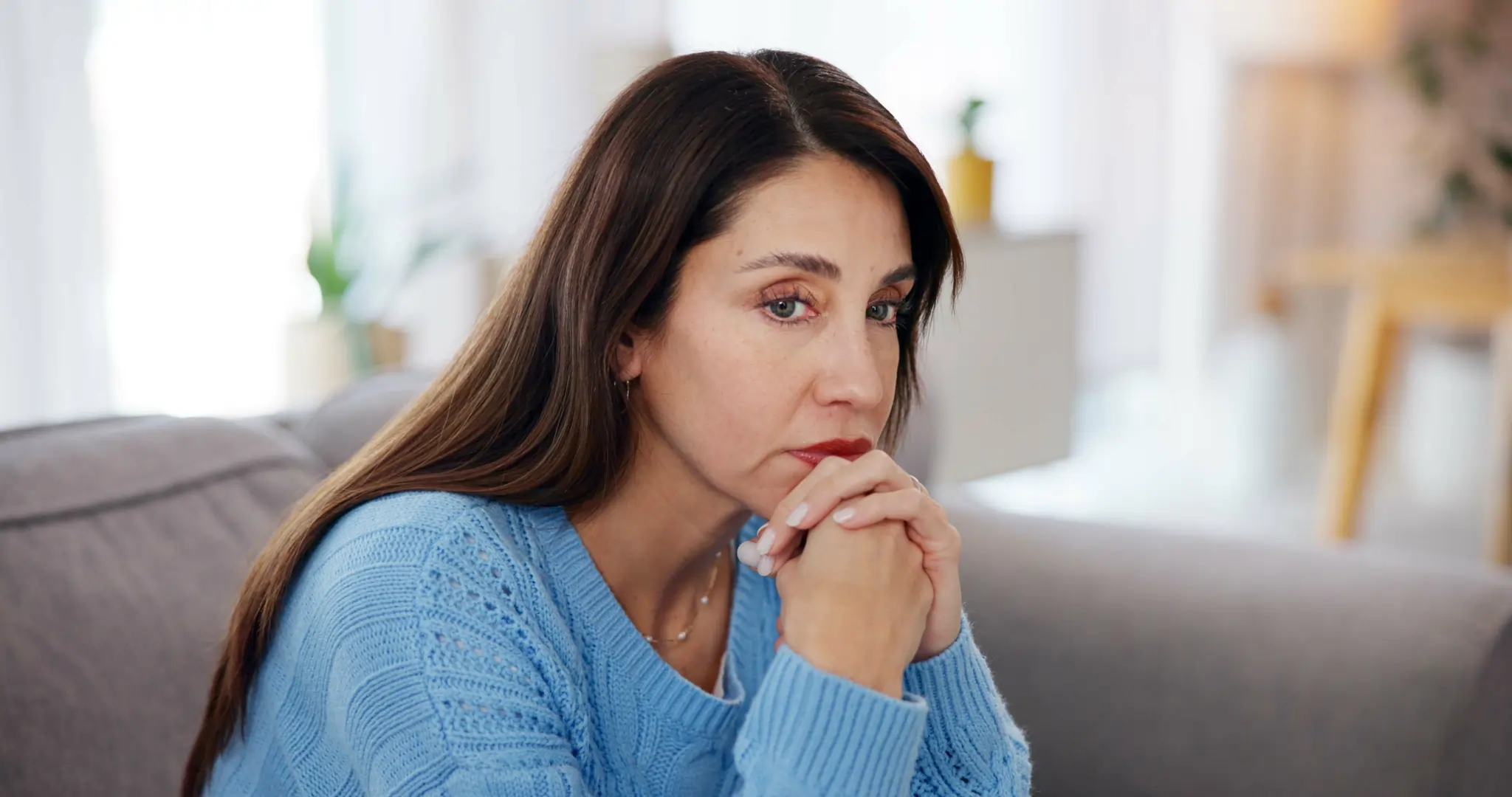
Depression and Anxiety in Menopause: Causes, Symptoms, and Solutions
Understanding the Impact of Menopause on Brain Function
Menopause doesn’t just affect the body—it impacts the brain, too. Estrogen helps regulate emotions, memory, and mental clarity. When levels drop, many women face emotional swings, brain fog, and memory issues. These shifts can trigger or worsen depression and anxiety, especially for those with a history of mood disorders.
Beyond hormones, menopause can stir deep emotions. It may bring a sense of loss—of youth, fertility, or identity. Questions about aging and life’s purpose often arise, intensifying feelings of sadness or anxiety.
Brain Fog and Mood Swings During Menopause Brain fog—characterized by forgetfulness, poor concentration, and confusion—is a common complaint during menopause. Research indicates that fluctuations in both estrogen and progesterone can impair cognitive function. These disruptions can make everyday tasks feel overwhelming and contribute to symptoms of depression and anxiety, particularly when accompanied by sleep disturbances or fatigue.
The Role of Hormonal Changes in Triggering Depression and Anxiety
- Estrogen and Mood Regulation: Estrogen boosts serotonin production, a neurotransmitter that enhances mood and emotional stability. A decline in estrogen can reduce serotonin levels, leading to mood swings, irritability, and even clinical depression and anxiety.
- Progesterone and Sleep Disruptions: Progesterone promotes relaxation and sleep. Its decrease during menopause often results in insomnia and night sweats. Poor sleep worsens mood, increases irritability, and heightens stress—key contributors to depression and anxiety.
- Testosterone and Energy Levels: Testosterone helps sustain energy, motivation, and libido. A drop in this hormone can cause fatigue, low motivation, and reduced enjoyment in daily activities—symptoms commonly associated with depression.
Recognizing the Symptoms of Depression and Anxiety During Menopause
Symptoms of Depression:
- Persistent sadness or hopelessness
- Loss of interest in previously enjoyable activities
- Chronic fatigue despite rest
- Sleep issues—either insomnia or excessive sleeping
- Irritability or increased anger
- Feelings of worthlessness or guilt
- Difficulty concentrating or making decisions
Symptoms of Anxiety:
- Constant or excessive worry
- Restlessness and nervousness
- Physical symptoms such as a racing heart, dizziness, or muscle tension
- Panic attacks
- Difficulty managing anxious thoughts
- Avoiding situations that cause anxiety, leading to isolation
Contributing Factors Beyond Hormones While hormonal shifts are central to menopausal mental health challenges, other factors can also increase the risk of depression and anxiety:
- Life Stressors: Menopause often coincides with major life changes—children moving out, aging parents, or retirement planning. These transitions can amplify emotional distress.
- Body Image Issues: Weight gain, hot flashes, and changes in appearance can lower self-esteem and contribute to depressive thoughts.
- Social Isolation: Changes in libido and relationship dynamics can cause emotional disconnection, leading to loneliness.
- Genetic Predisposition: A family history of mental health disorders can increase susceptibility to depression and anxiety during menopause.
Solutions for Managing Depression and Anxiety During Menopause
- Hormone Replacement Therapy (HRT): HRT can help restore hormonal balance, alleviating mood swings, hot flashes, and sleep problems. This can significantly ease symptoms of depression and anxiety. However, it’s essential to consult a healthcare provider, as HRT isn’t suitable for everyone.
- Antidepressant Medications: Selective serotonin reuptake inhibitors (SSRIs) and serotonin-norepinephrine reuptake inhibitors (SNRIs) are commonly prescribed to manage menopausal depression and anxiety. These medications support neurotransmitter balance and can help improve mood and reduce stress.
- Cognitive Behavioral Therapy (CBT): CBT is a highly effective talk therapy that helps women identify and challenge negative thought patterns. It provides tools to manage stress and regulate emotions—essential for navigating depression and anxiety during menopause.
- Mindfulness and Stress Reduction Techniques: Practices like meditation, yoga, and deep breathing can reduce stress and enhance emotional well-being. These approaches also improve sleep, which is critical for mental health during menopause.
- Lifestyle Adjustments:
- Exercise: Regular physical activity boosts mood, relieves stress, and supports better sleep. It also helps regulate hormonal balance.
- Nutrition: A diet rich in whole grains, fruits, vegetables, lean proteins, and omega-3 fatty acids can help stabilize mood and energy.
- Sleep Hygiene: A consistent bedtime routine, limiting screen time, and avoiding stimulants like caffeine can improve sleep quality and reduce depression and anxiety.
- Social Support and Community: Joining support groups—online or in person—can help women feel understood and less alone. Sharing experiences and coping strategies with peers can offer emotional relief and combat the isolation often associated with depression and anxiety.
How Physical Activity Helps with Depression and Anxiety Exercise is a powerful, natural antidepressant. It boosts serotonin and endorphins—chemicals that elevate mood and reduce stress. For menopausal women, regular movement can reduce fatigue, improve self-image, and lessen anxiety symptoms.
Best Exercises for Menopausal Women:
- Walking: A gentle way to lift mood and stay active.
- Yoga and Meditation: Excellent for relieving stress and calming the mind.
- Strength Training: Maintains bone and muscle health while reducing feelings of helplessness or sadness.
Alternative Therapies: Complementary Approaches for Emotional Wellness Some women find that alternative remedies can complement conventional treatments:
- Acupuncture: May help balance hormones and reduce stress, promoting mood stability and relaxation.
- Herbal Supplements:
- Black Cohosh: Known for easing mood swings and hot flashes.
- Maca Root: Believed to enhance energy and emotional resilience.
- Ginseng: May support mental clarity and reduce fatigue linked to depression and anxiety.
When to Seek Professional Help If emotional symptoms become severe or persist for weeks, it’s important to speak to a healthcare provider. Depression and anxiety during menopause are treatable, and timely intervention can significantly improve quality of life. Mental health is just as important as physical health—especially during this transition.
Long-Term Mental Health After Menopause Even after the menopausal transition, some women continue to face emotional challenges. The postmenopausal period may bring new health issues and lifestyle changes that can affect mood. Ongoing self-care, mental health check-ins, and open conversations with healthcare professionals remain vital.
Empowering Women Through Awareness and Action Menopause doesn’t just impact the body—it reshapes a woman’s emotional landscape. By shedding light on the link between menopause, depression and anxiety, and hormonal changes, women can be better equipped to handle this phase with strength and self-compassion. With the right support, education, and tools, menopause can be a time of growth, not just struggle.
FAQs
Yes, many women experience their first symptoms of depression or anxiety during menopause due to sudden hormonal changes. Even without a prior history, fluctuating estrogen and progesterone levels can impact mood regulation.
Menopausal depression and anxiety often coincide with other symptoms like hot flashes, irregular periods, sleep disturbances, and brain fog. A healthcare provider can help rule out other causes through blood tests and mental health assessments.
HRT can be highly effective in the short-to-medium term, but it's not suitable for everyone. It’s best used under medical supervision and often in combination with lifestyle changes or therapy for long-term emotional wellness.
Yes, foods rich in omega-3 fatty acids (like flaxseeds and walnuts), leafy greens, lean proteins, and fermented foods (like yogurt) can support brain health and stabilize mood. Reducing sugar and caffeine can also help manage anxiety.
Absolutely. Chronic emotional distress can weaken the immune system, disrupt sleep, raise blood pressure, and increase the risk of heart disease. Seeking timely support is essential for both mental and physical health.

Sonakshi Kandhari





